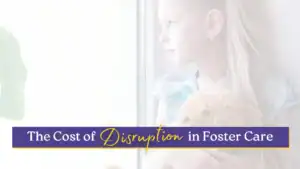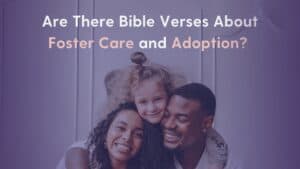When I first began working in child welfare over 17 years ago, the Lord had not yet captivated my heart and radically changed my life. Because of this, I had an exceptionally critical eye for the Christians. Especially ones who were foster or adoptive families, and the Church. I saw the Church as an organization that should be more engaged in this field of foster care. But, sat idly by instead. Also, I had the impression that Christian adoptive and foster families quit more quickly and looked down on birth families and even children’s behaviors. I wish I were alone in these assumptions, but I had many who thought the same way.
Foster Care Ministry
Thankfully, when the Lord made me His, He also provided me with grace for these families. As well as a heart for Church engagement. And the gift of a new role in a faith-based ministry, Lifeline Children’s Services.
Through this ministry, I’ve seen the Church actively engage in foster care. Engage in a way I previously assumed could not or would not happen. Christian families are retaining licensure longer than the national average. They are loving children from hard places in ways that can only be explained by the Holy Spirit’s indwelling. They engage birth families on their own and seem to “get” the ministry and heart involved in foster care.
I’ve also seen churches and Christians show an interest in foster care, only to be left confused and beaten down by the process. They want to be successful and nurturing, yet lack the education, support, and resources they need. Due to this, they do often end up appearing as I once viewed them. As our ministry began to hear from the body of Christ and child welfare services, we saw a great need. The need to help fill this gap between the desire to serve and support and the resources needed to do it successfully. This movement is how the Fostering Hope curriculum was born.
Empower the Church in Foster Care
Fostering Hope is a set of free resources to empower the Church to support different parties in foster care. From foster families, children in care, their birth families, and even the child welfare staff. This program provides resources like tip sheets, sermon outlines, support group curriculum, birth family engagement curriculum, and additional foster family training.
One of these foster family training sessions, Fostering from a Biblical Worldview, has been incredibly beneficial. It provides a biblical perspective on the quality education provided by secular or State organizations. Many of these organizations develop extensive pre- and post-training that teach families about children’s needs. Also, how to address these needs in a trauma-informed manner.

This critical education accurately teaches foster parents how the human brain can heal. Also, that trauma can be used for good. The brain can slowly “re-wire” or “re-mold” through processing, experiences, and new connections. This healing is an incredible truth! But what makes it even more beautiful is that this ability to heal was established by our Creator God. He designed His image-bearers in intricate and complex ways.
Equipping Churches
Trauma can be repurposed for good in a child’s life. However, it’s the redemptive work of Christ that makes this truly possible, not only mentally, but spiritually, as well. These truths add an incredible depth of beauty to the ministry and healing potential for children and their families. However, they cannot be taught by secular or State resources. However, they . That education is the privilege of the Church!
Equipping churches who are engaged in foster care ministry and Christian foster families, with this curriculum, has been incredibly fruitful. I’ve personally seen the difference it makes in ministry when families combine the science of trauma healing with the beauty of our loving God and His redemptive gospel. Foster families are equipped to care for children from hard places in a trauma- and biblically-informed way. They see and minister to birth families as valuable image bearers of our Creator. Also, they serve alongside child welfare workers, and know the importance of fostering within a community of believers (the Church). This guide was created to provide all the components needed to facilitate this in a small group setting. It includes video training, facilitator guides, and printable worksheets for participants. These resources can be used for a foster family who is brand new or has been fostering for years.
Hope for the Future
My hope is that resources like this make it easier for more churches to equip more homes. For these homes to become sustainable, healthy, gospel-focused foster families. I pray that this education affects how these families love children, birth families, and State workers. Love them so that there are fewer workers like my younger self, who assume the worst of the Church, but instead see the local church and its people as actively engaged. Not because they are trying to rescue anyone, but because they want to display the grace they have received to others. This material was made for the benefit of others. We pray it can benefit your churches and homes directly.


















